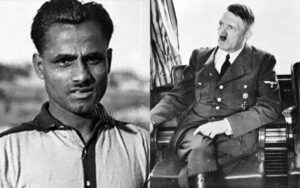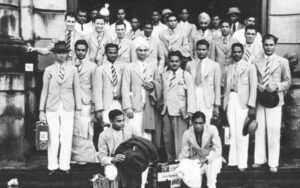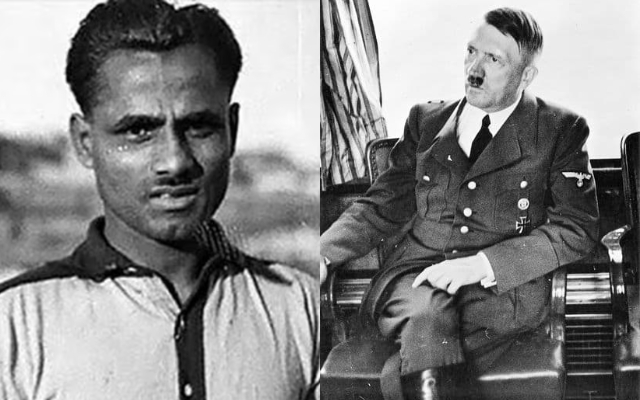
Sport and politics have always gone hand in hand, and the Olympics are no different. Followers of sport will not forget the Black Power Salute in Mexico City (1968), for example. But we Indians also have our own story, when in 1936, the team refused to salute Adolf Hitler at the opening ceremony, creating a massive stir in Berlin.
The Indians were the only contingent apart from the Americans not to perform the raised-arm salute as a mark of obeisance to the German Chancellor.
British-loyalist newspapers were more focused on the defiant US contingent, making only a brief mention of what the Indians did. This was partly because of the dark cloud that hung over the participation of the USA and the threat of a boycott by some of their athletes, with Jewish athletes Milton Green and Norman Canners staying true to their word. The high-profile American contingent, uncertain as to whether their participation might be interpreted as support for the Nazi regime and its anti-Semitic policies, had barely made it to Berlin after a narrowly won vote orchestrated by Avery Brundage, sports administrator and future IOC President. But their contingent refused to dip the flag or ‘doff its headgear’ when passing the podium, eliciting ‘a certain amount of whistling from a section of the crowd’.
The Berlin Games are remembered mostly for the exploits of the American athlete Jesse Owens, whose triumph disproved Nazi theories of Aryan dominance. For most journalists, the Americans were the story of the Games.
For the Latest Sports News: Click Here

Yet, the Indian decision not to salute Hitler was a grand gesture of defiance, totally in sync with the tenets of the dominant stream of Indian nationalism. This was perhaps why loyalist newspapers in India chose not to play it up. The Calcutta Statesman chose to place its coverage of the Indian defiance on its political pages, as opposed to the sports pages where all Olympic news was usually placed.
It is important to note that GD Sondhi, one of the officials accompanying the Indian contingent, was deeply influenced by nationalist ideas. In the late 1940s, inspired by the dream of pan-Asian unity, he single-handedly evolved and created the framework of the Asian Games. At a time when Britain was courting Hitler with its policy of appeasement – just two years after which Neville Chamberlain, then prime minister, would triumphantly declare ‘peace for our time’ after the Munich conference – the Indian decision not to salute the Führer, it seems, stemmed ideologically from the anti-Nazi position taken by Mahatma Gandhi and Jawaharlal Nehru.
From the 1920s, Gandhi had repeatedly opposed Britain in the event of a European war and regarded fascism and Nazism as forms of Western imperialism. From 1938 onwards, Gandhi began opposing Hitler in the pages of Harijan, at one point even sending him a letter to desist from violence. In 1939, the Congress resolved to ‘keep aloof from both imperialism and fascism’ in its session in Tripuri.
There is no evidence to show any direct linkage between Indian nationalism and the athletes’ decision to not salute Hitler in Berlin. But the fact remains that it was a political act, breathtaking in its audacity and in direct opposition to most other contingents at the Games, including the British.
Also Read: Whenever I ride to the tunes of Jai Ho, everything seems to fit in place: Anush Agarwalla





